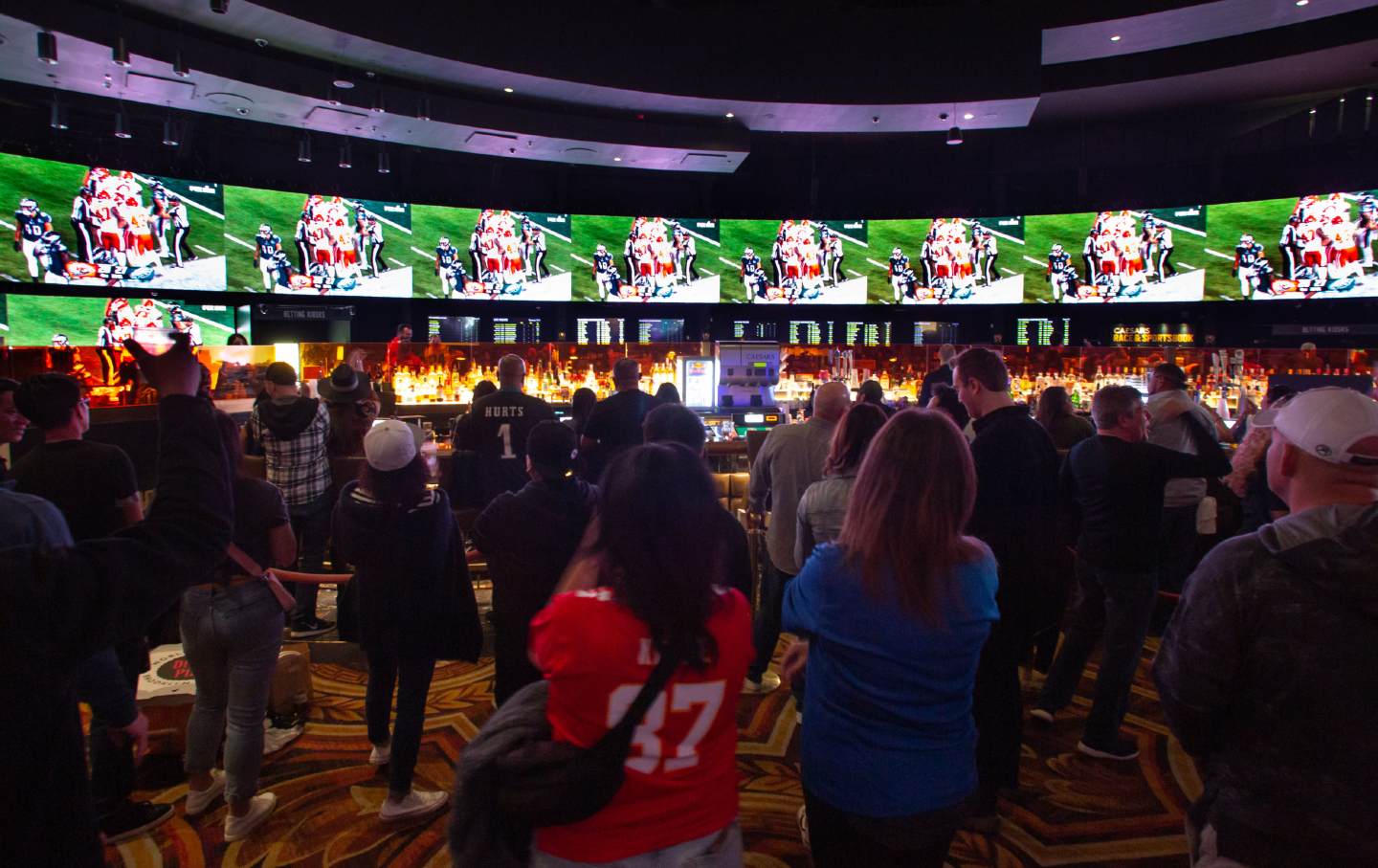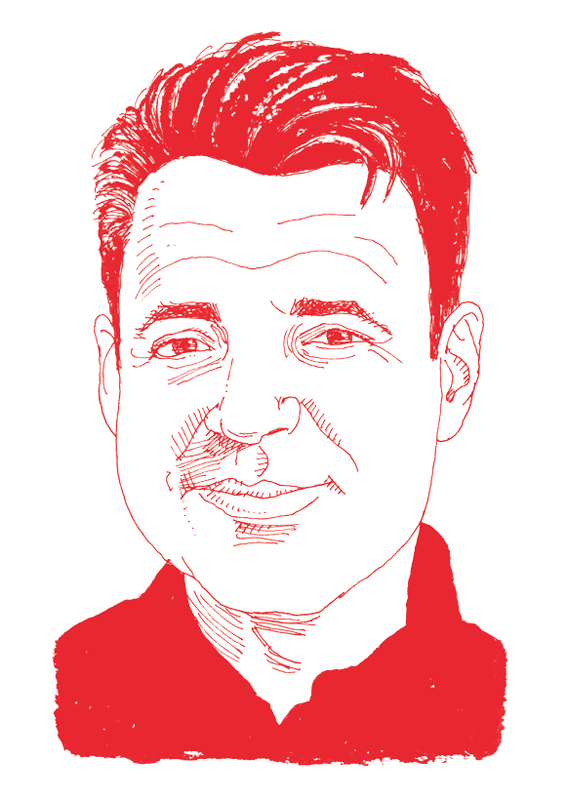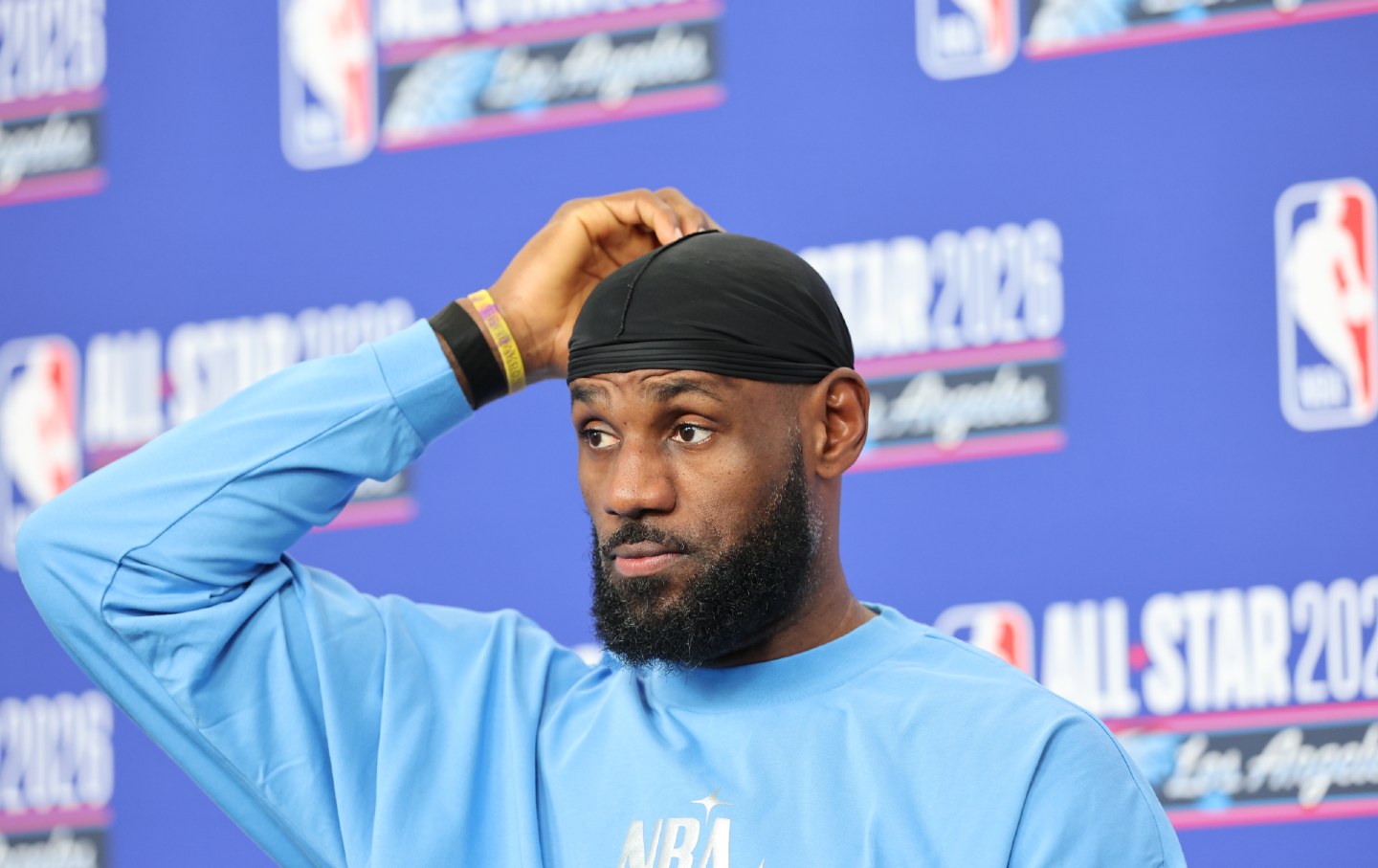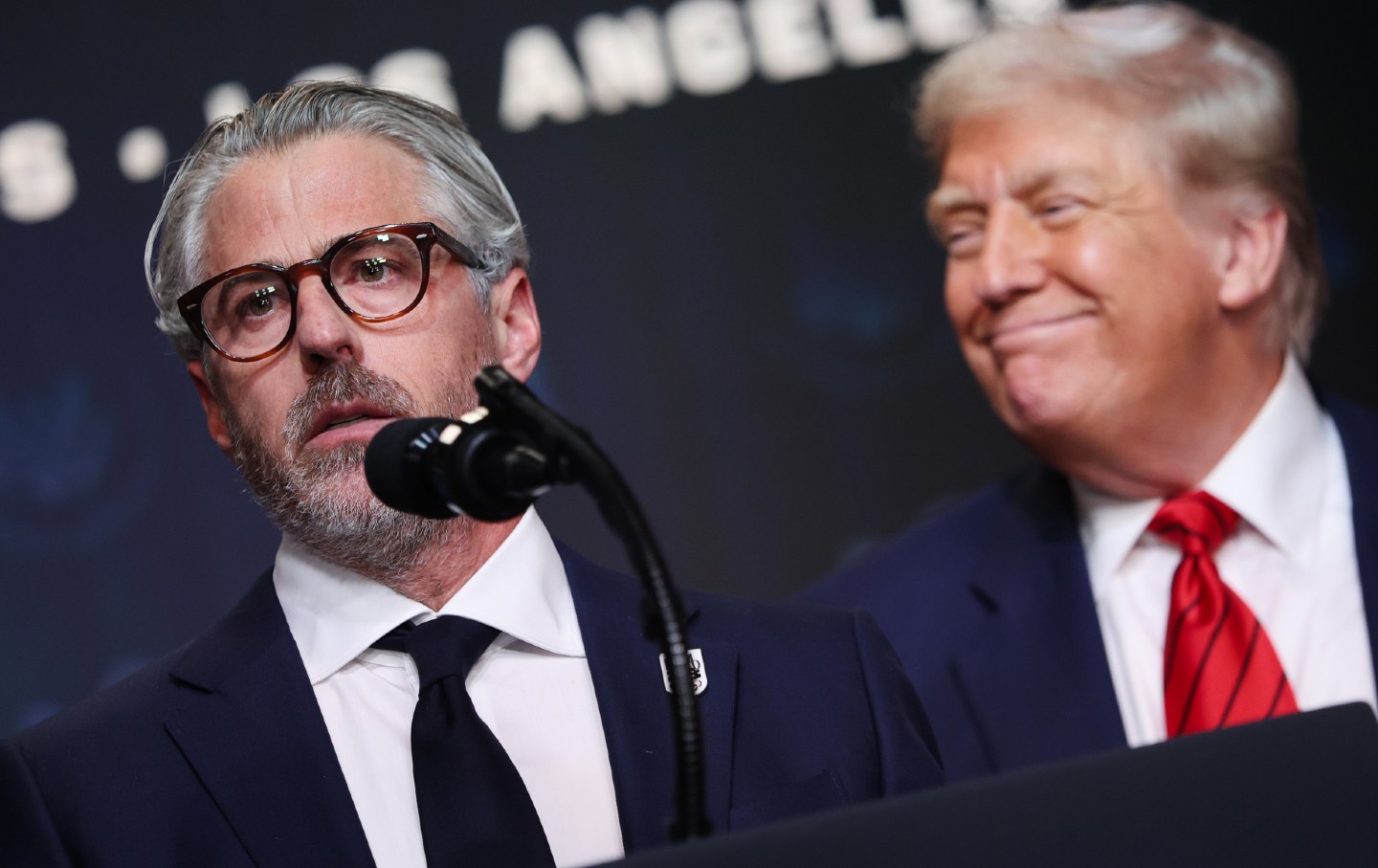The Super Bowl of Gambling
The gambling industry has consumed the sports world, so of course, the Super Bowl is in Las Vegas.

Crowds jam into Caesars Sports Book at Caesars Palace Hotel & Casino to bet on the Kansas City Chiefs vs. Philadelphia Eagles in Super Bowl LVII on February 12, 2023, in Las Vegas, Nev.
(George Rose / Getty Images)The number is staggering: The American Gaming Association expects $23 billion to be spent on legal gambling during this year’s Super Bowl. That’s a 44 percent jump from last year’s $16 billion. The deliriously happy gambling industry projects that 67.8 million people—26 percent of all American adults!—will bet on the game. (The actual number of gamblers is almost certainly higher as young people are surely betting through online apps with the help of older friends or parents.)
These trends aren’t going anywhere. A-list celebrities and even journalists relentlessly promote betting during broadcasts. Gambling analyst Chris Grove told Jay Ginsbach at Forbes, “There’s a good chance that every Super Bowl for the next 10 or so years will be the most bet Super Bowl thanks to the underlying growth of regulated sports betting in the US.”
Gambling is no longer on an illegal sideline of the sports world or in an ancillary, but legal, area run by casinos and offshore betting accounts: It is the sports world. Gambling is the economic blood that flows through the body; it keeps sports leagues upright and functioning. Super Bowl ads are no longer dominated by products like cars or even beer. The ads are for companies picking the meat off our bones. Gambling is a regressive tax placed upon the addictions of the consumer. The industry is creating a feeling that the only way to fully enjoy sports is to have some skin in the game.
Fittingly, this year’s Super Bowl is in the country’s gambling capital, Las Vegas. Tell a person in 1990 that the Super Bowl would be in Sin City, and they would have insisted upon a drug test. For most of sports history, Vegas might as well have been radioactive. Any connection to gambling, it was believed, would sully the one thing that makes sports different from every other culture product: an undetermined outcome. The fear was that if the audience started looking at sports as if it were “sports entertainment,” like professional wrestling, the audience would head for the exits.
It is why examples had to be made of Shoeless Joe Jackson and Pete Rose, all-time baseball greats kept out of the Hall of Fame. It was to remind the players—and the fans—that gambling has no legal place in sports. Meanwhile, in the intervening years, Rose has spent more time in Las Vegas than Wayne Newton, with a lucrative hustle signing baseballs and telling stories. The sports world now quietly sees Rose as more prophet than pariah.
The supremacy of gambling in sports means that Rose is no longer a warning sign to athletes. Leagues can crack down on players and referees who are caught gambling online, but obviously it is impossible to track every bet when done through third, fourth, or fifth parties. It strains credulity that the athletes, executives, coaches, and refs—some of the most competitive people on earth—aren’t placing bets while NFL Commissioner Roger Goodell and other assorted complicit officials look the other way. The gambling industry has eroded the trust that people have in sports. It’s no wonder that so many people think the Taylor Swift Super Bowl is some sort of NFL master plan, liberal psy-op, or grand design of the betting concerns.
Then there is reality that the NFL and the other sports leagues are now parties to a growing epidemic of addiction. Gambling, according to the American Psychiatric Association, affects the functioning of the brain, leading to “substantial distress or impairment.” This problem in high schools, where the still-developing brain is particularly vulnerable, is severe and under discussed. People would be shocked to learn how easy it is for teenagers to get into these apps and fall into debt before they even have a job. It is true that at the end of these gambling ads there is the equivalent of a surgeon general’s warning informing people that if they have a problem, they can call 1-800-Gambler. To say that this is the fine print is an insult to fine print. You practically need a magnifying glass to spot it.
This is the sports world acting like the venture capitalists who are now gobbling up teams from the old family companies. In a time of war and social decay, it is natural that people are looking for escape. But this is an anti-worker respite that leaves people destitute and in need of more help than our society is willing to provide. This is the underbelly of Las Vegas, where the house always wins, and it’s the underbelly of the Super Bowl. The collision of the two, once unthinkable, is now merely corporate “synergy.”









